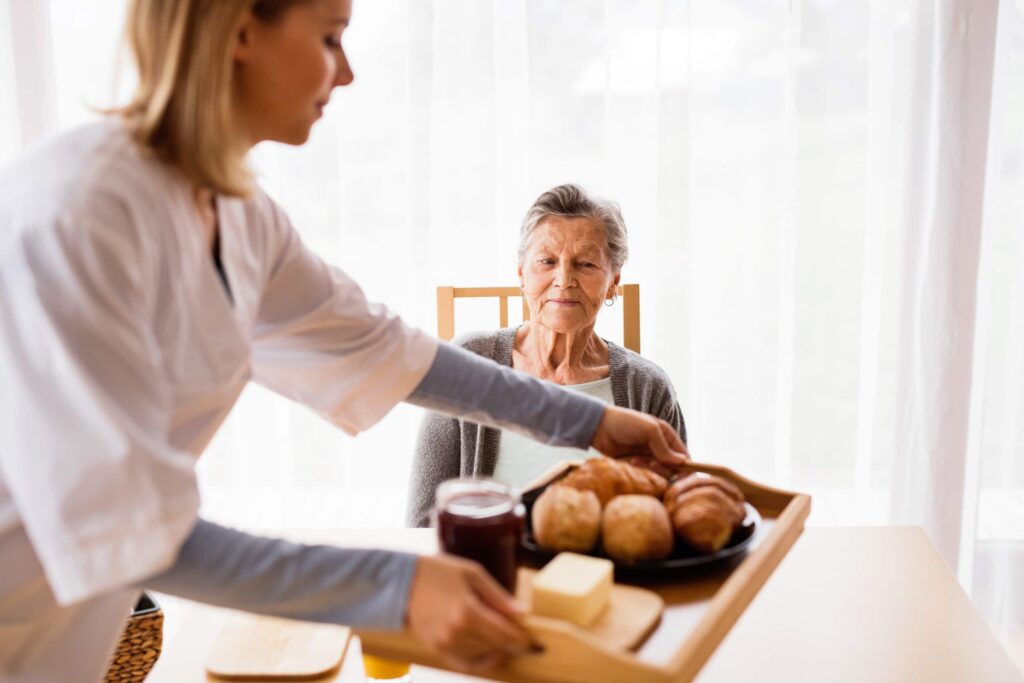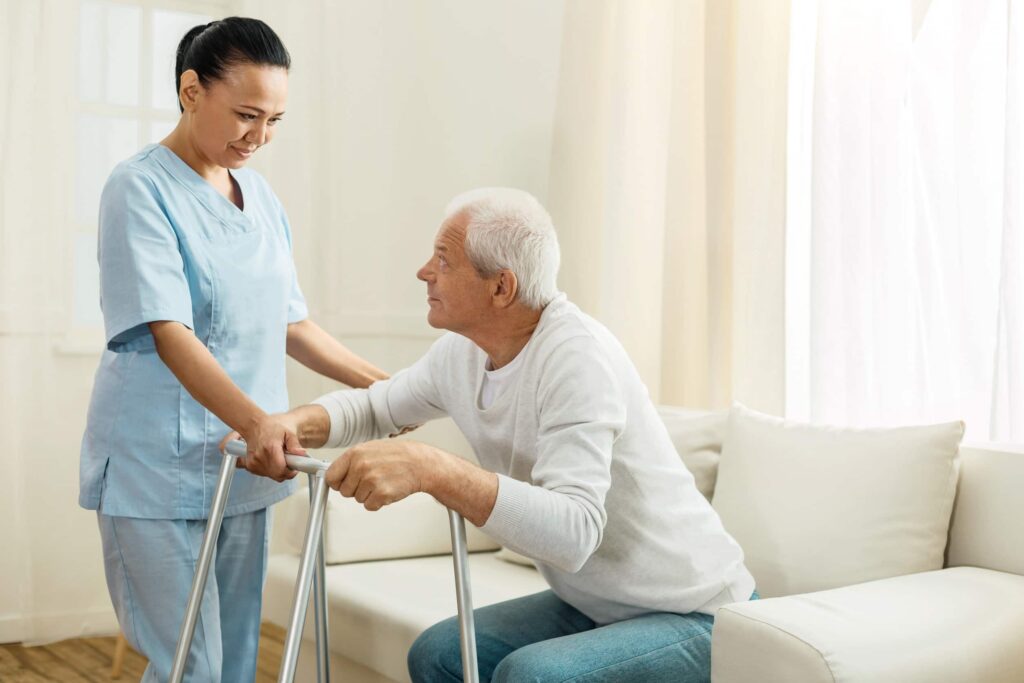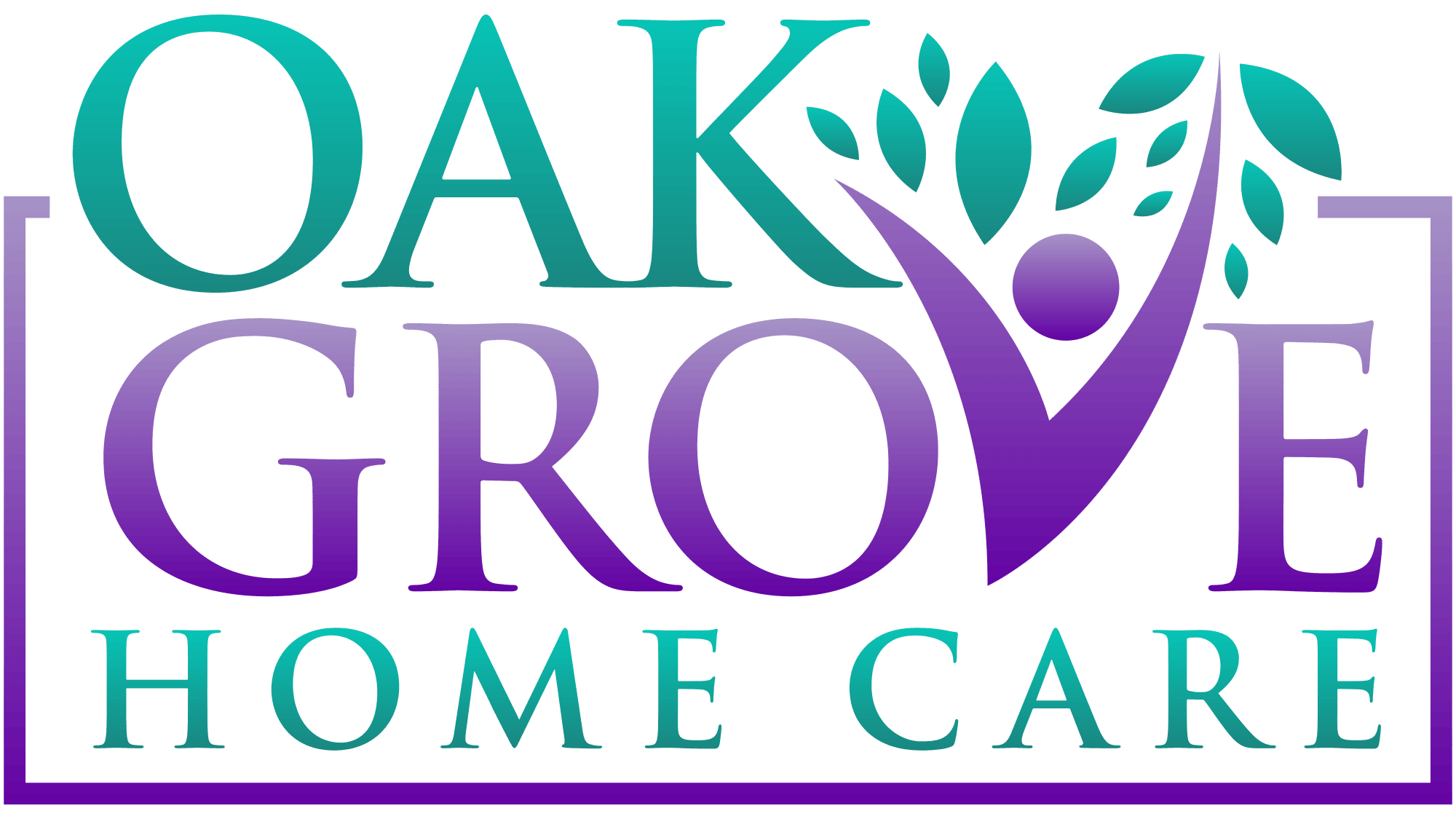
You’re considering how non-medical home care can bolster senior independence, aren’t you? It’s crucial to understand that such care offers more than just basic support. By providing personalized aid with daily activities and promoting social engagement, it enhances seniors’ quality of life. This holistic approach also guarantees safety and comfort at home. Curious about how these services can tailor care to individual needs and preferences while offering respite for family caregivers? Let’s explore further.
Personalized Assistance With Daily Living Activities
Steering through the complexities of daily living activities can become increasingly challenging for seniors, but personalized assistance offers a lifeline. You might find that tasks like grooming, which were once routine, now require extra effort. With expert grooming assistance, maintaining personal hygiene and dignity becomes more manageable, boosting self-esteem and overall well-being. Evidence supports that proper grooming can reduce the risk of infections and improve mental health.
Additionally, medication management is essential. Mismanagement can pose serious health risks. A personalized approach guarantees you’re taking the right medications at the correct times, minimizing potential side effects and interactions. These services are delivered with a holistic approach, addressing not just physical needs but also enhancing emotional and social well-being, thereby supporting your independence and quality of life.
Enhancing Safety and Comfort at Home
To enhance safety and comfort for seniors at home, you should focus on effective fall prevention strategies, such as installing grab bars and improving lighting. Evidence shows that modifying the home environment by removing tripping hazards and rearranging furniture can greatly reduce the risk of accidents. Additionally, providing personal care assistance customized to individual needs guarantees that seniors maintain their independence while staying safe and comfortable.
Fall Prevention Strategies
While ensuring a safe environment for seniors, fall prevention strategies are essential to enhancing both safety and comfort at home. Start with a thorough fall risk assessment to identify potential hazards and tailor interventions. This assessment helps in understanding individual vulnerabilities and crafting personalized strategies. Encourage regular exercise routines focusing on balance, strength, and flexibility. Evidence shows that targeted exercises can notably reduce fall risks by improving physical stability. Adopting a holistic approach, including nutritional guidance and regular health check-ups, further bolsters fall prevention efforts. Engage seniors actively in their care plans, ensuring they understand the importance of these strategies. Consistent communication with caregivers and family members fosters a supportive environment, reinforcing the senior’s confidence and independence.
Home Environment Modifications
Creating a safer home environment complements fall prevention strategies by addressing potential hazards in the living space. Begin by conducting thorough environmental safety assessments to identify risks. Look for slippery floors, poor lighting, and cluttered pathways. By pinpointing these issues, you’re already on the path to implementing effective home accessibility improvements. Consider installing grab bars in the bathroom, enhancing lighting in dim areas, and securing loose rugs. These modifications are crucial to maintaining independence and comfort for seniors. Additionally, rearranging furniture can create more navigable spaces, reducing tripping risks. It’s essential to adopt a holistic approach by integrating technology like motion-sensor lighting and smart home devices. These changes don’t just enhance safety; they foster a sense of empowerment and autonomy.
Personal Care Assistance
When seniors receive personal care assistance, their safety and comfort at home are greatly enhanced. This support focuses on personal hygiene and grooming assistance, essential elements for maintaining dignity and preventing health issues. Evidence shows that regular personal hygiene reduces the risk of infections and skin conditions, while grooming assistance fosters emotional well-being by promoting self-esteem. By integrating these services into daily routines, you guarantee that seniors continue to live independently and safely in their own homes.
Moreover, personalized care plans are crafted to address individual needs, offering a holistic approach to daily living. By focusing on each senior’s unique requirements, you can minimize risks like falls and encourage active participation in their care, ultimately enhancing their quality of life.
Promoting Social Engagement and Companionship

Engaging seniors in social activities is essential for their overall well-being, as it fosters emotional support and mental stimulation. Attending community events can be a powerful avenue for seniors to connect with others, reducing feelings of isolation. You can encourage participation in local clubs or gatherings, which offer opportunities for friendship building and companionship. Studies show that regular social interactions enhance mood and decrease the risk of depression among older adults. Moreover, creating a supportive network through shared interests doesn’t just benefit seniors emotionally; it enhances their sense of belonging and purpose. Non-medical home care professionals can facilitate these interactions by providing transportation and encouraging involvement in activities, thereby promoting an active lifestyle that keeps seniors engaged and fulfilled.
Supporting Cognitive Health and Mental Well-being
You can support seniors’ cognitive health by incorporating engaging activities like puzzles and memory games, which stimulate brain function. Providing emotional support through active listening and empathy enhances their mental well-being, fostering resilience against stress and anxiety. Encouraging social interaction not only enriches their lives but also serves as a protective factor against cognitive decline.
Engaging Cognitive Activities
Cognitive activities play an essential role in maintaining mental agility and overall well-being for seniors. Engaging in puzzle games and memory exercises can greatly enhance cognitive function, helping you stay sharp and independent. Research supports these activities as effective in stimulating neural pathways and slowing cognitive decline. By incorporating these into your daily routine, you actively contribute to preserving your mental health. Puzzle games like crosswords or Sudoku challenge your problem-solving skills and improve concentration. Meanwhile, memory exercises, such as recalling lists or engaging in storytelling, help reinforce short-term and long-term memory. A holistic approach to cognitive health involves not only challenging your brain but also considering factors like social interaction and physical activity, ensuring a thorough strategy for mental well-being.
Emotional Support Strategies
While maintaining cognitive health is essential, emotional support strategies play an important role in enhancing seniors’ overall mental well-being. Integrating mindfulness practices into daily routines can greatly boost emotional resilience and cognitive health. Here are some expert strategies:
- Mindfulness Practices: Encourage activities like meditation or deep-breathing exercises, which help seniors manage stress and stay present.
- Emotional Resilience Training: Teach coping mechanisms to help seniors better handle life’s challenges, fostering a sense of empowerment and optimism.
- Personalized Care Plans: Tailor emotional support strategies to individual needs, ensuring seniors receive the most effective care possible.
- Holistic Health Monitoring: Regularly assess emotional and cognitive well-being, adapting strategies as necessary to promote sustained mental health.
These strategies can profoundly impact seniors’ independence and quality of life.
Promoting Social Interaction
Building on the foundation of emotional support, promoting social interaction further enhances seniors’ cognitive health and mental well-being. Engaging in community activities not only combats loneliness but also stimulates the mind through rich interpersonal exchanges. Encouraging participation in local clubs or volunteering fosters a sense of belonging and purpose, essential for mental wellness. Additionally, technology integration plays a pivotal role in bridging social gaps. Teaching seniors to use video calls or social media enables them to maintain connections with family and friends, thereby reducing isolation. Research underscores that such interactions can delay cognitive decline and improve mood. By creating a supportive network, you empower seniors to thrive both mentally and emotionally, reinforcing their independence and overall quality of life.
Facilitating Mobility and Transportation
To enhance seniors’ quality of life, facilitating mobility and transportation is essential in non-medical home care. Confirming accessible transportation and utilizing mobility aids can greatly impact seniors’ independence. Here’s how you can support their mobility:
- Offer Accessible Transportation: Collaborate with local services providing senior-friendly transportation options, confirming they can attend medical appointments and social activities.
- Utilize Mobility Aids: Equip seniors with walkers, canes, or wheelchairs customized to their needs, enhancing their ability to move safely within and outside the home.
- Conduct Regular Assessments: Evaluate seniors’ mobility capabilities regularly to adapt strategies and confirm ongoing safety and independence.
- Educate on Safe Practices: Teach seniors effective techniques for getting in and out of vehicles or maneuvering public spaces, promoting confidence and security.
Encouraging Nutritional Balance and Meal Preparation
Making certain seniors maintain a balanced diet is crucial for their overall health and well-being, particularly as nutritional needs change with age. You can support this by integrating nutritional education into daily routines. Educate seniors on the importance of vitamins, minerals, and hydration, tailoring advice to individual health conditions. Effective meal planning plays a significant role. Collaborate with them to create diverse, nutrient-rich menus that respect their preferences and restrictions. Involvement in meal preparation not only fosters independence but also enhances their understanding of healthy eating practices. By focusing on these elements, you empower seniors to make informed dietary choices, reducing the risk of malnutrition and promoting long-term vitality. This holistic approach makes certain dietary needs are met while respecting personal autonomy.
Providing Respite for Family Caregivers

Respite care embodies relief and renewal for family caregivers who tirelessly support their elderly loved ones. It offers a crucial break to recharge, ensuring sustained caregiver support without compromising the quality of care. Evidence shows that periodic respite enhances mental well-being, reducing stress and burnout. Here’s how it benefits you:
- Physical and Emotional Recharge: Step away to rejuvenate, returning with renewed energy and patience.
- Improved Caregiver Health: Regular breaks lower the risk of chronic stress-related health issues.
- Enhanced Family Dynamics: Family relief leads to healthier relationships, as stress and fatigue diminish.
- Professional Assistance: Trained caregivers provide expert support, ensuring your loved one’s safety and comfort.
Incorporating respite care into your routine fosters a balanced, holistic caregiving approach.
Tailoring Care Plans to Individual Needs and Preferences
Recognizing the diverse needs and preferences of each senior is essential in crafting a personalized care plan that truly benefits them. By conducting thorough individual assessments, you can understand the unique challenges and aspirations of each person. This evidence-based approach guarantees that you design customized care solutions that promote independence while respecting personal choices. Consider both physical and emotional well-being as part of a holistic strategy, taking into account their lifestyle, daily activities, and social connections. By doing so, you create a supportive environment where seniors feel valued and empowered. This customized care not only enhances their quality of life but also fosters a sense of autonomy, allowing them to thrive in the comfort of their own homes.
Frequently Asked Questions
What Are the Costs Associated With Non-Medical Home Care Services?
When considering non-medical home care services, you’ll find costs vary based on several pricing factors. A detailed cost breakdown includes caregiver experience, service hours, and location. Research shows thorough assessments guarantee you’re getting appropriate services for the best value.
How Do I Choose a Reputable Non-Medical Home Care Provider?
To choose a reputable non-medical home care provider, guarantee they conduct thorough background checks and verify caregiver qualifications. Prioritize agencies with a holistic approach, offering personalized care plans backed by expert knowledge and evidence-based practices.
Are Non-Medical Home Care Services Covered by Insurance?
You’ll need to verify if your insurance covers non-medical home care services. Insurance coverage varies widely, and policy limitations often apply. Review your plan’s details or consult an expert to guarantee you understand your benefits fully.
What Is the Difference Between Medical and Non-Medical Home Care?
You differentiate medical and non-medical home care by the services provided. Medical assistance involves clinical tasks like wound care, while non-medical focuses on caregiving tasks such as meal preparation. Both approaches guarantee extensive, patient-centered care.
How Can I Assess the Quality of Care Provided by a Home Care Agency?
To assess a home care agency’s quality, review caregiver qualifications and gather client feedback. Verify training, certifications, and experience. Collect testimonials and ratings from clients to guarantee a holistic understanding of the agency’s service standards.
Conclusion
In embracing non-medical home care, you’re enabling seniors to thrive in their homes with dignity and independence. This holistic approach guarantees personalized support for daily activities, enhances safety, and fosters social connections. By prioritizing cognitive health and nutritional balance, you’re actively combating isolation and promoting well-being. Customized care plans address unique needs, offering peace of mind to family caregivers. Oak Grove Homecare specializes in crafting these individualized plans, ensuring each senior receives compassionate, expert-driven care tailored to their specific requirements. Ultimately, you’re empowering seniors to lead fulfilling lives, rooted in autonomy and enriched by compassionate, expert-driven care.

